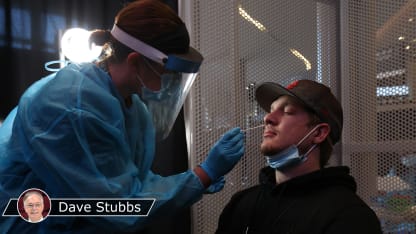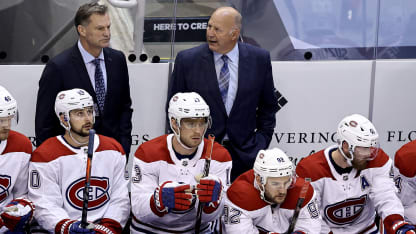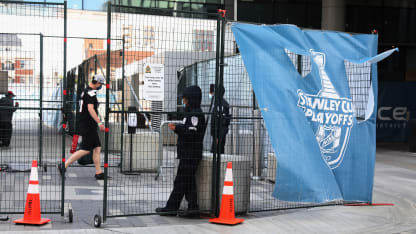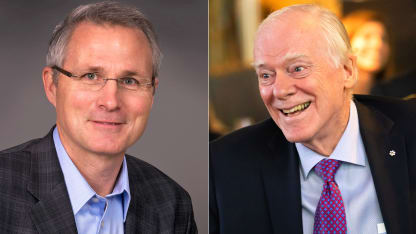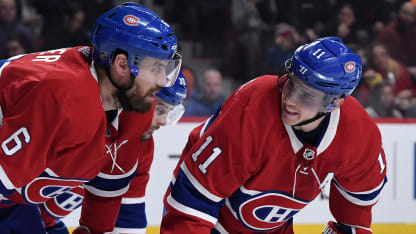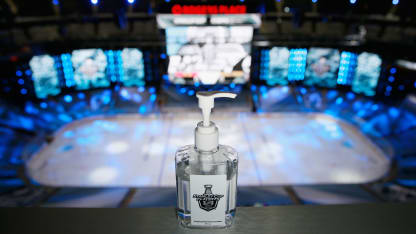The NHL's playoff bubble was tightly controlled in Edmonton, seen here, and in Toronto.
"Normally an episode of chest pain like Claude sustained would result in a quick transfer to the closest emergency room for evaluation," Mulder said. "But in this case, going to the hospital meant his leaving the bubble. This explains the initial concern of moving Claude to hospital that night."
Muller took over behind the bench for the balance of the playoffs and the Canadiens were eliminated by the Flyers in six games.
Julien's dramatic experience was one of the remarkable behind-the-scenes stories during the NHL playoffs. With many others, it will be discussed during this conference that will benefit the Montreal General Hospital Foundation. Registration with interactive participation is free, though donations will be welcome.
The inaugural Hockey 911 in 2019 was themed as a salute to the Montreal General medical community that for many decades has cared for the Canadiens and their families. It drew a sellout crowd of 450 at Montreal's Bell Centre for an evening of storytelling by former Canadiens players Serge Savard, Yvan Cournoyer, Bob Gainey, Chris Nilan, Trent McCleary, Hockey Hall of Fame coach Scotty Bowman, Mulder and fellow Montreal General doctors.
Like many events during the coronavirus pandemic, it seemed that the second edition of Hockey 911 would be cancelled. But in September, Quebec entertainer and conference facilitator Gregory Charles, a hospital foundation ambassador, staged a virtual, interactive event on mental health as it relates to youth and young adults. Attended by a couple thousand participants, the successful fundraiser proved that such a virtual format could work.
